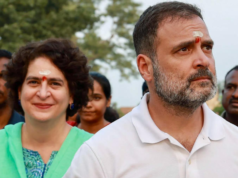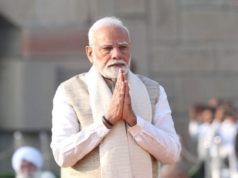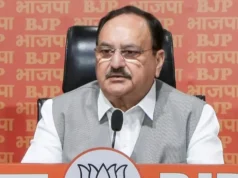The option of sending a multi-party delegation to several foreign countries is being actively examined, official sources told CNN-News18 after Operation Sindoor. The project seeks to make India’s position on terrorism coming from Pakistan evident to the world community.
In an attempt to put up a united front against cross-border terrorism, sources said the government is now interacting with opposition parties and plans to include them before deciding on the delegation’s makeup and schedule.
Multi-Party Delegation’s Focus
In order to present India’s viewpoint on the necessity and ramifications of Operation Sindoor in light of ongoing terrorism coming from Pakistani territory, the prospective delegation will probably interact with other governments, think tanks, and media organizations.
The multi-party delegation traveling overseas to represent India will focus its discussions on five main points: first, describing the provocations by Pakistan that prompted the operation; second, explaining why Operation Sindoor was an essential response to these threats; third, expressing the possibility of similar actions in the future should more acts of terror occur; fourth, stressing that the operation specifically targeted only terror hideouts; and fifth, highlighting Pakistan’s long-standing role in supporting terrorism and its effects on a global scale.
As the administration strives for a more nonpartisan approach to the problem of cross-border terrorism, the delegation’s makeup is anticipated to be revealed after discussions with all relevant parties.
According to reports, the action is consistent with other endeavors, including as former Prime Minister PV Narasimha Rao’s delegation of Atal Bihari Vajpayee to the UNHRC.
When Atal Bihari Vajpayee attended the UNHRC to represent India
Then-prime minister P.V. Narasimha Rao launched a major diplomatic move in 1994 when tensions between India and Pakistan were at an all-time high and Islamabad was about to submit a resolution to the UN Human Rights Commission (UNHRC) in Geneva regarding alleged human rights violations in Jammu and Kashmir. Atal Bihari Vajpayee was given the responsibility of leading the multi-party delegation to the UNHRC.
In order to effectively refute Pakistan’s claims and present a unified national position on the Kashmir problem, the team comprised Farooq Abdullah and Salman Khurshid, who was the minister of state for external affairs at the time. Another important player was India’s then-ambassador to the UN, Hamid Ansari. The Indian delegation, led by Atal Bihari Vajpayee, successfully answered Pakistan’s resolution, demonstrating the effectiveness of PM Rao’s plan. Islamabad retracted its resolution as a result.







